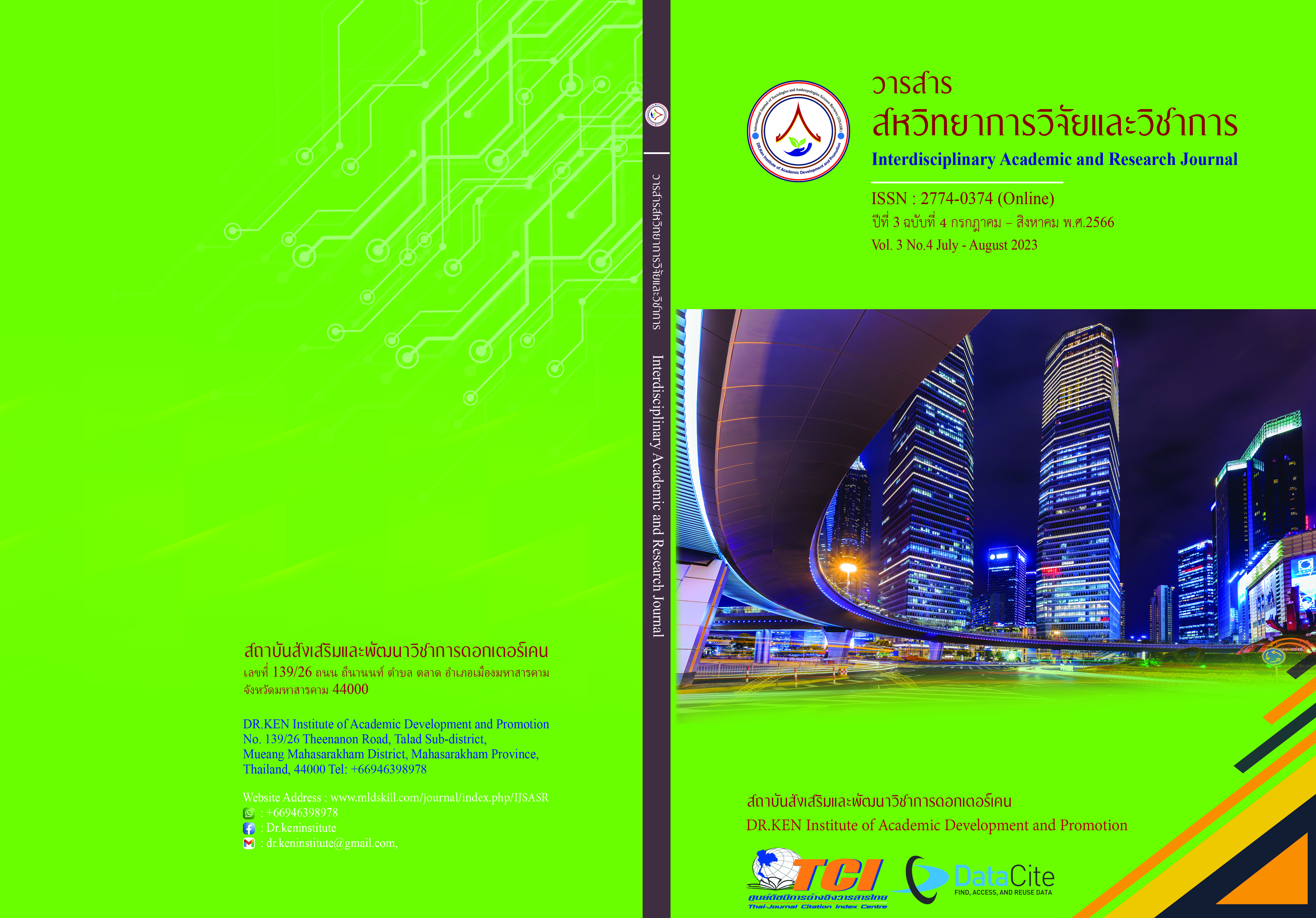The Effects of Literature-Based Learning Experience Provision to Promote Body Protection from Sexual Abuse of Young Children
DOI:
https://doi.org/10.14456/iarj.2023.186Keywords:
Literature – Based Learning;, Sexual Abuse;, Young ChildrenAbstract
Organizing experiences using literature for early childhood children is an experience that uses fairy tales to help children enjoy, enjoy, understand the role of the characters, and can learn whether the character's actions are good or bad, and how they can be used in everyday life. The literature helps children understand easily because they use language that is easy for children to understand and can be read aloud to teachers or friends. Thus, this study aimed to study the effects of literature–based learning experience provision to promote body protection from sexual abuse of young children. The target group was 15 male and female children aged between 4 - 5 years old, studying in kindergarten level 2, semester 2, the academic year 2022, Ramkhamhaeng University Demonstration School (Elementary Department). Tools used in the study were 24 lesson plans on literature-based learning experiences for young children and an assessment form on sexual abuse body protection capability for young children. Data were analyzed using mean and standard deviation. Qualitative data were analyzed by content analysis. The results found that young children who participated in the literature–based learning experience provision had a mean score of 10.20 which was higher than before participated. Therefore, the literature–based learning experience provision contributed to body protection from sexual abuse of young children.
References
กระทรวงศึกษาธิการ. (2560). หลักสูตรการศึกษาปฐมวัย พุทธศักราช 2560. กรุงเทพมหานคร: โรงพิมพ์ คุรุสภาลาดพร้าว.
จันทรา ภู่เงิน. (2549). การศึกษาวรรณกรรมสำหรับเด็กของ ปรีดา ปัญญาจันทร์ . สารนิพนธ์ การศึกษาบัณฑิต สาขาภาษาไทย, มหาวิทยาลัยศรีนครินทรวิโรฒ.
นฤมล เนียมหอม. (2559). การจัดประสบการณ์โดยใช้วรรณกรรมเป็นฐาน. ฐานข้อมูลด้านการศึกษาปฐมวัย. โรงเรียนทุ่งมหาเมฆ. Retrieved October 10, 2022, from: http://www.nareumon.com
แอมเนสตี้ อินเตอร์เนชั่นแนล ประเทศไทย. (2564). ละเมิดสิทธิหนูทำไม เสียงเล็ก ๆ ที่ถูกมองข้ามในสังคมไทย. Retrieved October 10, 2022, from: https://www.amnesty.or.th/latest/blog/865/
Hasni, U., & Suparno, S. (2019). Method of Sex Learning for Children 5-6 years. Proceedings of the International Conference on Special and Inclusive Education (ICSIE 2018), 296(Icsie 2018), 330-334. https://doi.org/10.2991/icsie-18.2019.60
Rothlein, L., & Meinbach, A. M. (1997). Legacies: Using Children’s Literature in the Classroom. 2nd edition. New York: Harper Collins.
UNICEF. (2018). The United Nations Convention on the Rights of the Child. United Kingdom: UNICEF.
Downloads
Published
How to Cite
Issue
Section
License
Copyright (c) 2023 Walailuck Senagoon, Pattamavadi Lehmongkol

This work is licensed under a Creative Commons Attribution-NonCommercial-NoDerivatives 4.0 International License.
Copyright on any article in the Interdisciplinary Academic and Research Journal is retained by the author(s) under the under the Creative Commons Attribution-NonCommercial-NoDerivatives 4.0 International License. Permission to use text, content, images, etc. of publication. Any user to read, download, copy, distribute, print, search, or link to the full texts of articles, crawl them for indexing, pass them as data to software, or use them for any other lawful purpose. But do not use it for commercial use or with the intent to benefit any business.
















.png)


